Welcome to 584 members who joined this month 👋
Hey there, I’m Joshua, and welcome to the NCF Weekly newsletter where we share actionable guidance on building a business as a non-technical founder.
Check out our other newsletters: Tiny Empires and Seedstrapped
Your browser is where you spend most of your workday. You build stuff, write emails, manage projects, and automate workflows. Now browsers are getting AI built directly into them, and it's worth paying attention to.
This guide covers what AI browsers actually do, how they're different from regular Chrome, and which ones matter in 2025.
Sponsored by
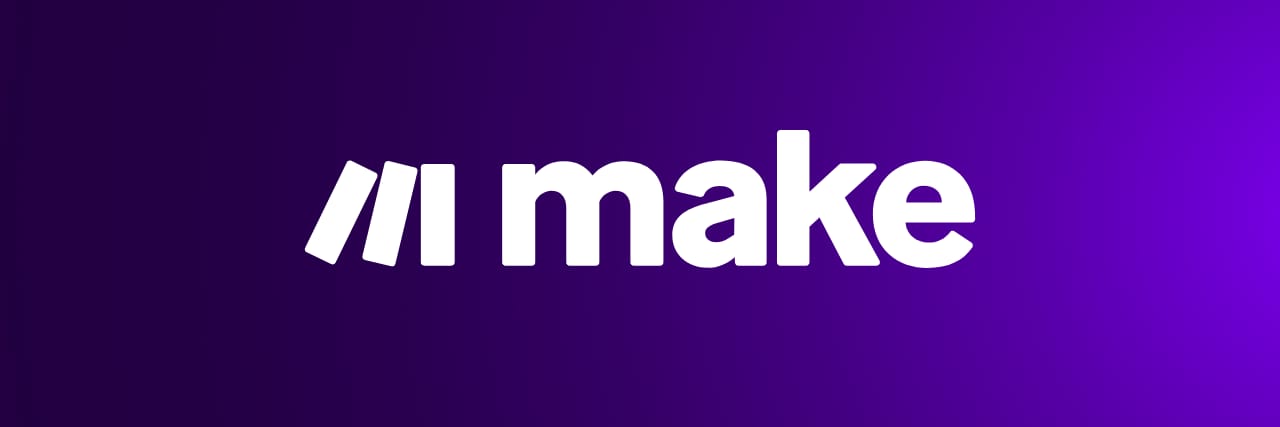
Make is the no-code, visual-first automation platform for businesses who want to create AI agents that manage processes intelligently.
With Make, automation becomes easier to design, monitor, and improve - supporting better decisions and stronger outcomes across your business.
Get started today to realize your business’s full potential. Use the button below to get 1 month of the Pro plan with 20,000 operations for free.
Get in front of 34k+ SaaS founders by sponsoring this newsletter
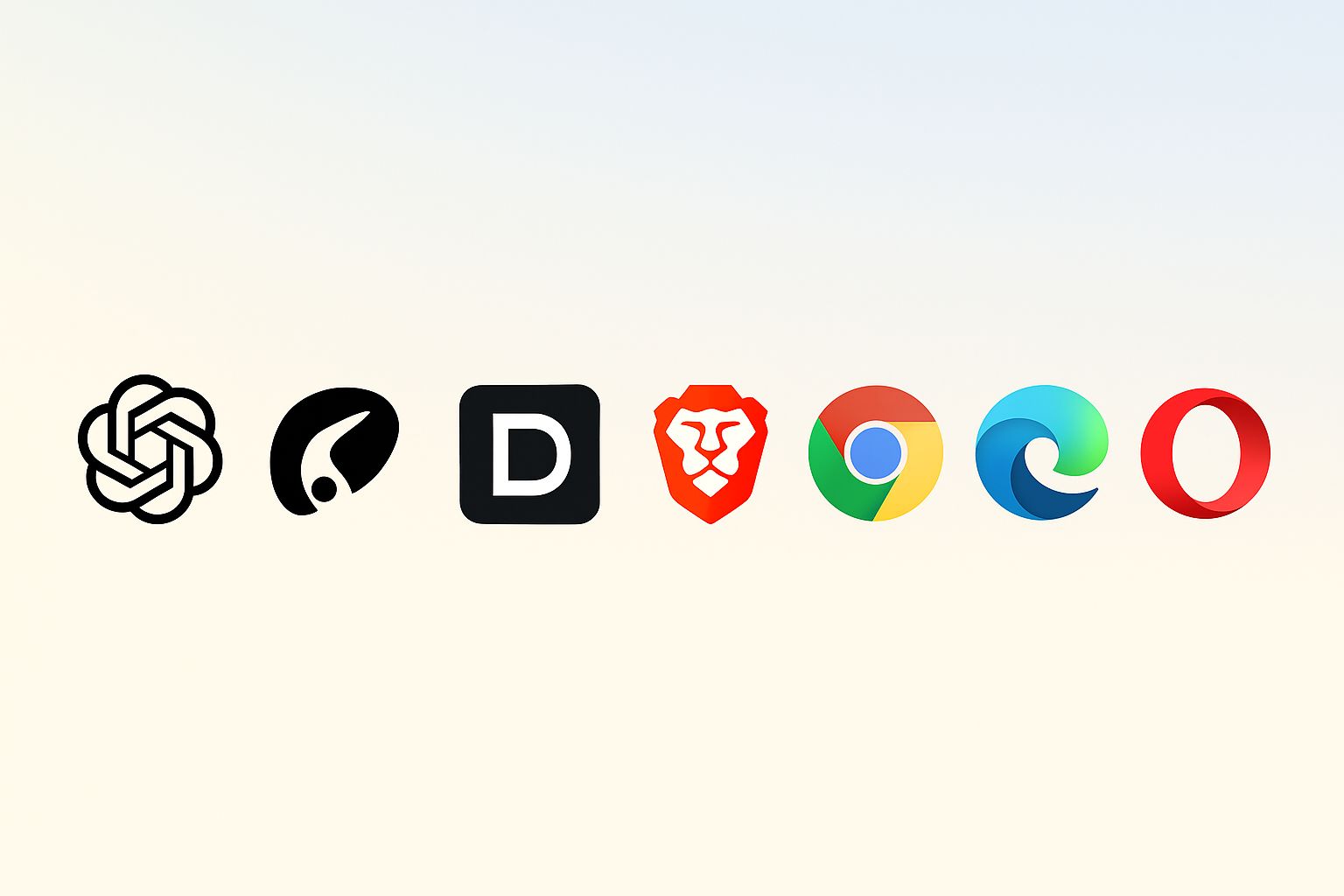
What Is an AI Browser?
An AI browser isn't just Chrome with a ChatGPT plugin. It's a web browser built with AI at its core.
These browsers understand what you're doing on the web. If you’ve ever taken screenshots of what you’re working on and then added them to ChatGPT to ask questions about it, this solves that problem. With an AI browser, the LLM can “see” what you see on the screen.
They can automate tasks, answer questions about pages you're viewing, organize your tabs, and help you work faster. You give commands in plain language, and the browser does the work.
Instead of manually clicking through forms or copying information between tabs, you tell the browser what you need and it handles the rest.
Greg Isenberg said earlier this week that once you’ve used one, there’s no going back. Let’s see if that’s true.
How They're Different from Chrome
Chrome is fast and reliable. Google added Gemini AI to help with summaries and tab organization. But Chrome treats AI as an add-on feature.
AI browsers work differently. Browsers like Atlas, Comet, and Dia are built around AI from the start. The workflow changes from "search and click" to "tell the browser what you want."
Here's what that means for founders:
Task automation: The browser can fill forms, book meetings, and gather information from multiple pages with just a prompt. It can even do things like send emails on your behalf or find a coupon code for whatever shopping basket you’re in.
Better research: Ask questions and get summaries instead of skimming dozens of tabs yourself.
Memory: The browser remembers your past sessions and documents. You can pick up where you left off instantly.
Custom workflows: Some browsers let you save tasks as reusable commands you can trigger whenever needed.
Security Considerations for AI Browsers
AI browsers introduce new security considerations that founders should understand.
When you use AI features, your browsing data - including potentially sensitive information like customer details, financial data, or strategic plans - gets processed by the AI provider's servers.
Agent Mode features that automate tasks can also trigger unintended actions like incorrect form submissions or accidental purchases if the AI misinterprets commands.
Some AI browsers have limited Chrome extension support, which can be problematic if you rely on password managers or security tools. If privacy is a primary concern, Brave processes AI tasks locally on your device rather than in the cloud.
For most founders, the practical approach is to use AI browsers for general research and content work while keeping traditional browsers for banking, payments, and sensitive business systems. Start with read-only AI features like summaries before enabling automation, and always review what permissions you're granting.
The Main AI Browsers in 2025
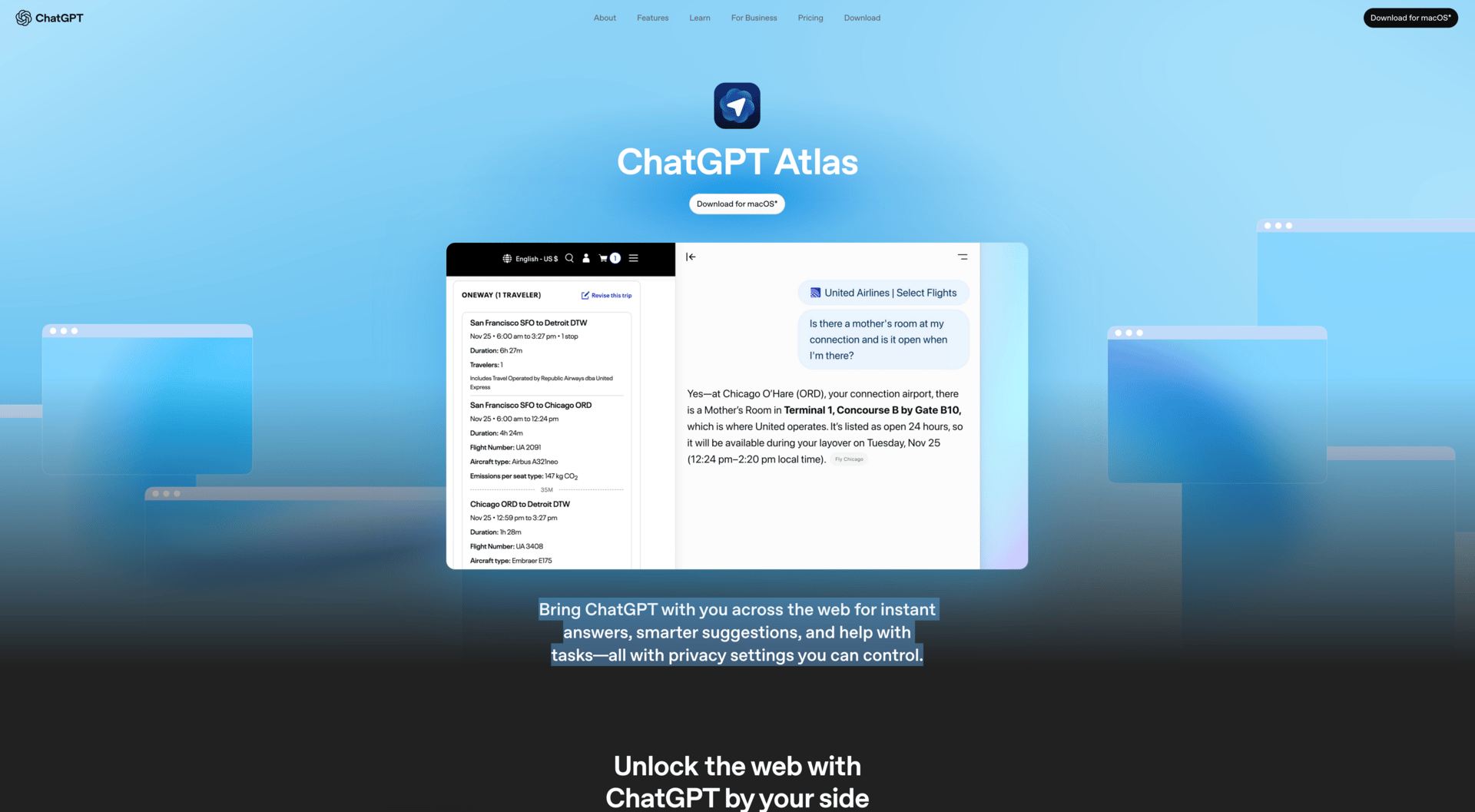
OpenAI Atlas
Atlas is built around ChatGPT. It has a sidebar where you can chat, take notes, and write emails while browsing. Agent Mode lets Atlas navigate pages, fill forms, and handle multi-step tasks if you give it permission.
The browser remembers what you've done across sessions, so you have context when you return. It's available on Mac right now. Windows, iOS, and Android versions are coming. Core features are free, but Agent Mode requires a paid ChatGPT subscription.
Good for research, writing, and automation. The main limitations are limited Chrome extension support and it's Mac-only for now.
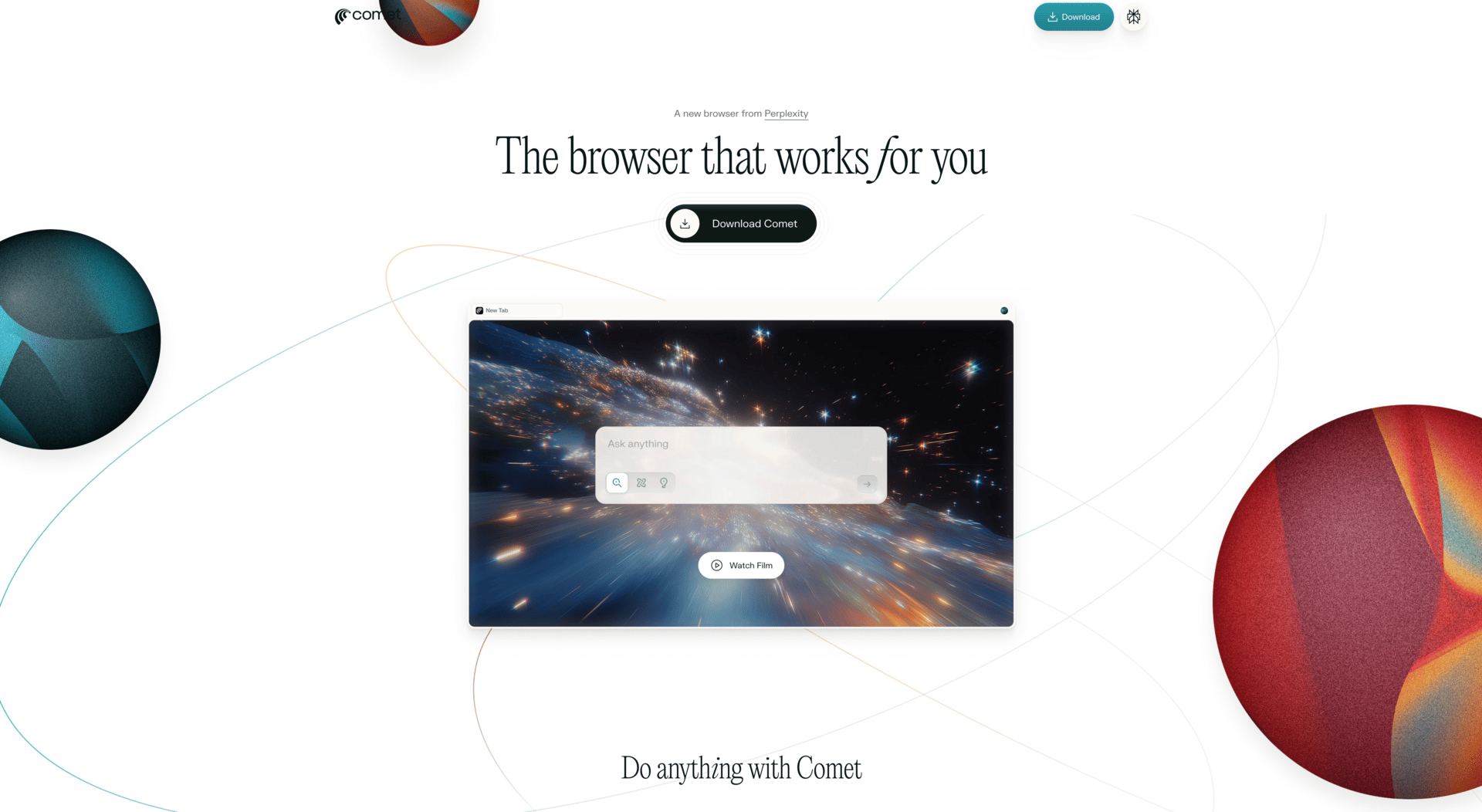
Perplexity Comet
Comet uses Perplexity's AI search engine instead of Google. You ask questions and get answers with sources included. You can tell it to book meetings, draft emails, or research across multiple tabs.
It works well for research-heavy workflows and handles multiple tabs at once. Available on Windows and Mac with mobile coming later.
Good for deep research and data work. The catch is you need the $200/month Max plan for full features.
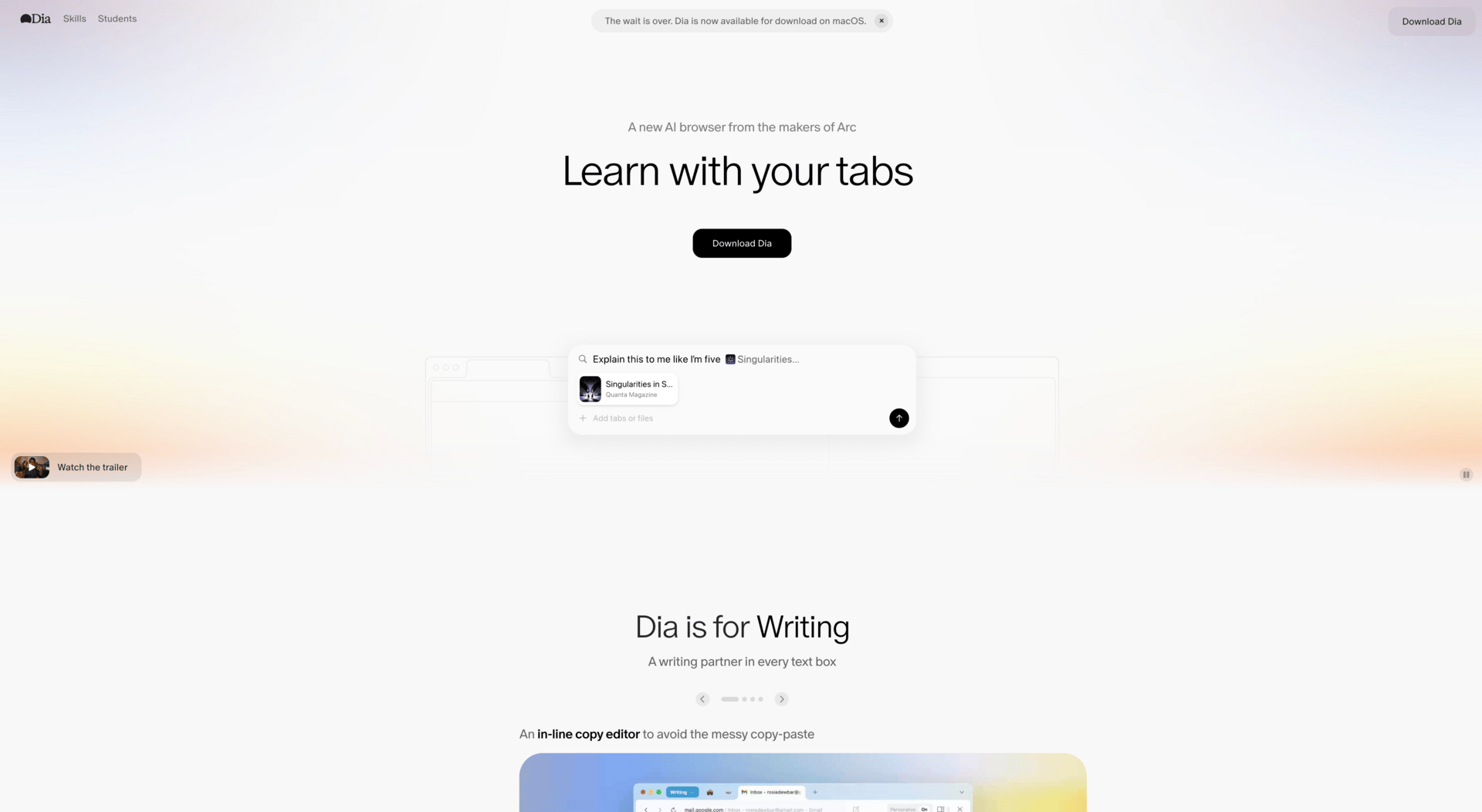
Dia
Dia comes from the team that made Arc browser. It's designed to be AI-first from the start. You chat in the address bar, create "skills" for tasks you repeat often, and let it automate things like drafting posts or gathering research.
It supports Chrome extensions and remembers context between sessions. Launching on Mac first with other platforms coming.
Good for custom workflows and saving time on repetitive work. It's currently invite-only and Mac-only at launch.
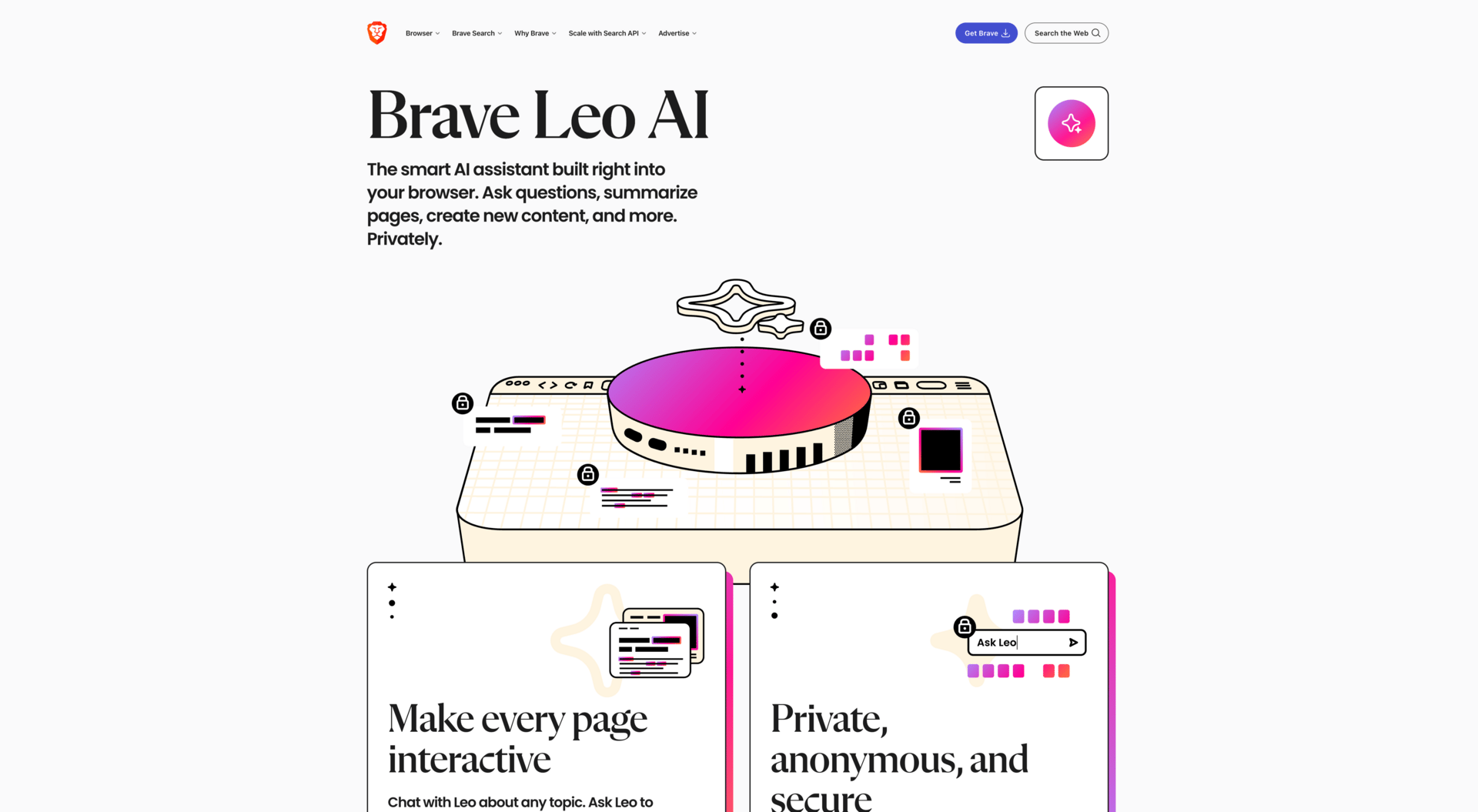
/im
Brave with Leo AI
Brave is known for privacy and blocking ads. Leo AI lets you chat with web pages, get summaries, translate languages, and generate code. It runs on your device, so your data stays private.
It's completely free with no ads.
Good for privacy-focused founders who want ad-free browsing. It has fewer automation features than the other options.
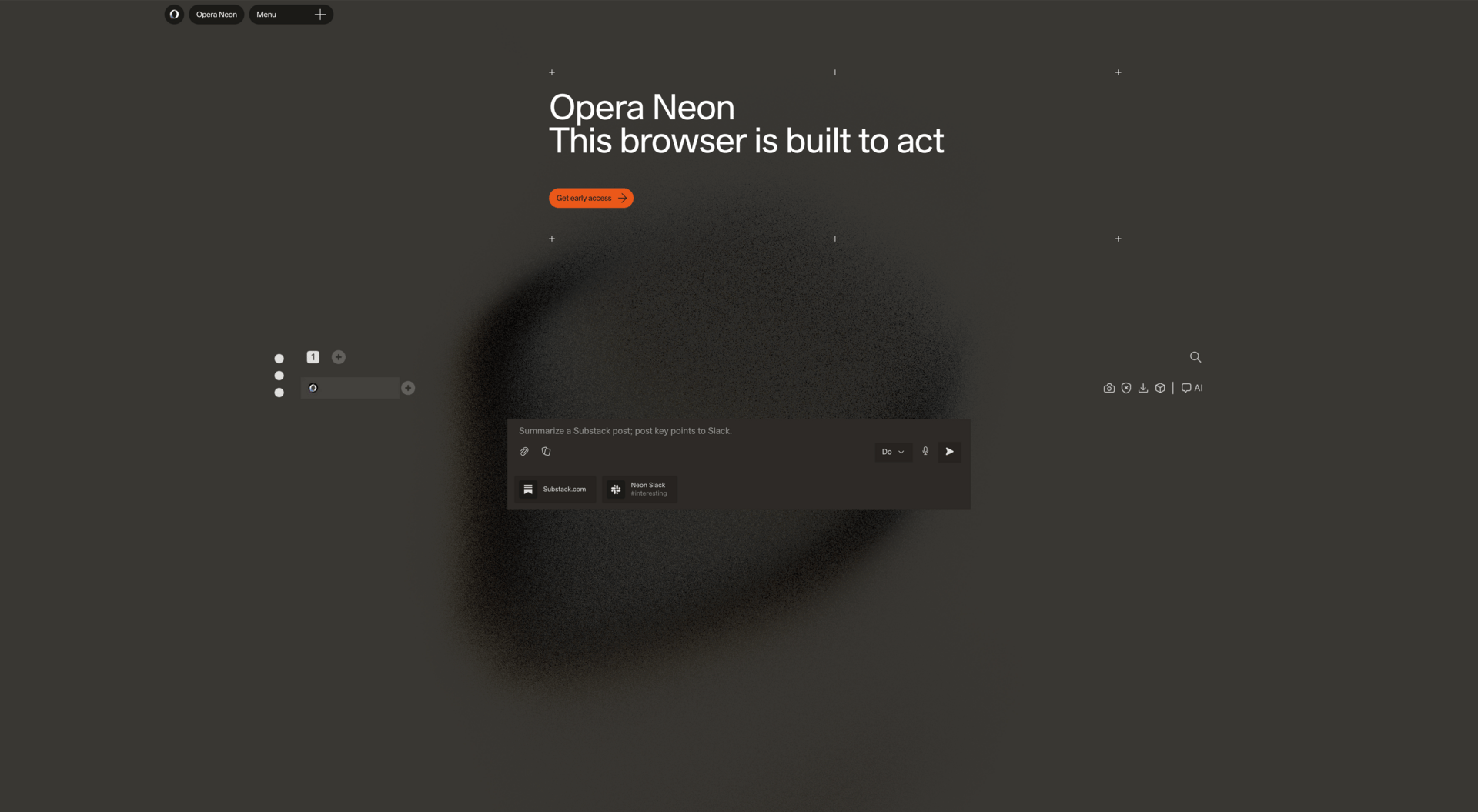
Opera Neon/Aria
Opera's new browser Neon includes Aria, an AI agent that handles research, code help, and tab management. You can tell it to summarize tabs, research topics, or organize your workspace. It works offline.
Good for tab organization and working without internet. Still in beta with pricing not announced yet.
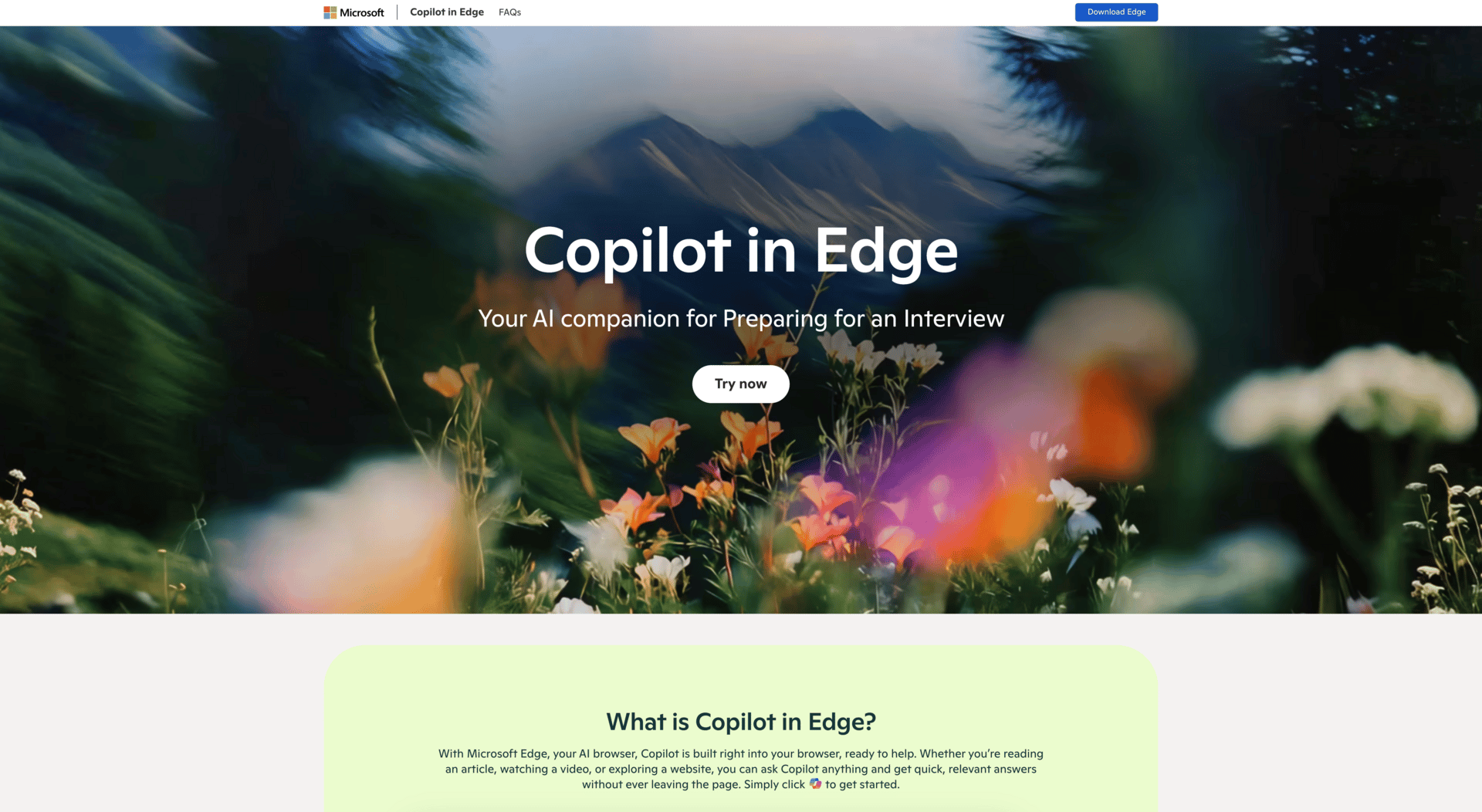
Edge with Copilot
Microsoft Edge has GPT built into a sidebar. You can summarize pages, get answers, and let Copilot help across tabs. It can book meetings, fill forms, and organize research in experimental mode.
Works well with Microsoft 365 tools if you already use those.
Good for Microsoft users. The advanced automation features are still experimental.
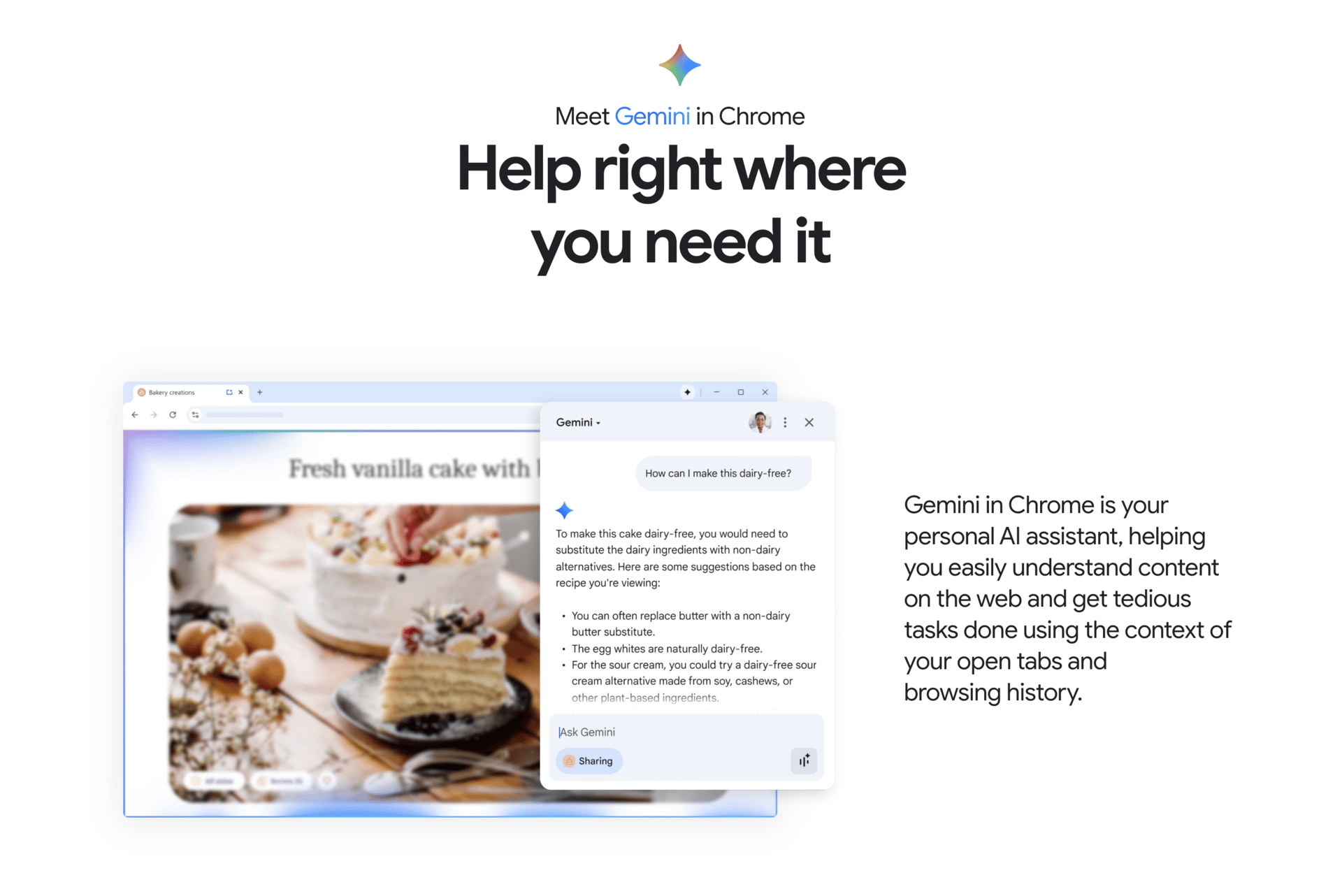
Chrome with Gemini
Google is adding Gemini AI to Chrome for summaries, tab help, and context-aware assistance. More automation features are coming soon. Chrome still has the best extension library and platform support.
Chrome treats AI as helpful features added to a traditional browser. AI browsers make automation the main point.
Good for stability and extensions. Automation features are still catching up to dedicated AI browsers.
Quick Comparison
Atlas - Best for ChatGPT users. Mac only. Free with paid options. Strong automation.
Comet - Best for research. Windows and Mac. Paid plans. Strong automation.
Dia - Best for custom workflows. Mac only. Free and $20/month. Strong automation.
Brave - Best for privacy. All platforms. Free. Basic automation.
Opera Neon/Aria - Best for tab organization. Desktop. Pricing TBA. Basic automation.
Edge - Best for Microsoft users. Windows and Mac. Free with paid options. Growing automation.
Chrome - Best for stability. All platforms. Free with paid options. Automation coming.
Should You Switch?
The early reviews are mixed, with many no-coders saying this is the way forward.
AI browsers make sense if you spend a lot of time on repetitive web tasks. If you're constantly researching, writing content, managing multiple projects, or switching between tasks, these browsers can save you significant time.
Keep in mind that some browsers are in beta or invite-only. Advanced features often require paid plans. Platform availability varies.
Try one out. Import your bookmarks and test the automation features. See if chatting with your browser to handle tedious tasks actually saves you time.
For no-code founders who already automate workflows, an AI browser is a natural extension of that approach. It brings automation directly into your most-used tool.
Get early access and deals for the best No-Code and AI tools
Get full access to all our resources with Pro Membership for a one-time payment of $199.
Sneak peek at what’s included 👇
💰$50k in Perks - Access Exclusive offers from the top no-code tools who have partnered with us. Including $15k waived Stripe fees, $500 Bubble credit + $1000 Coda credit View all
💻 No-Code Operating System - Advanced Notion template that replaces all your productivity tools. Everything you need to launch and manage your business from one page. Learn more
🎓 Course: Tiny Empires Method - Learn how to build a 6-figure business that works around your life and not the other way around. Learn proven frameworks to stop wasting time and start making money. Learn more
🎓 Course: Sales for Introverts (and people who don’t like selling) - Learn how to sell in a way that fits your personality and delivers consistent, reliable revenue for your busines. Learn more
🛠️ 75+ Curated No-Code Courses and Resources - We’ve curated 2000 no-code videos into 75+ easy to navigate courses. Save yourself hours of watching Youtube videos that don’t move your knowledge forward. View all
